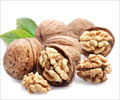Protein-rich diet which alters the gut microbiome with disease tolerant L.reuteri may help reduce symptoms of inflammatory bowel disease.
Highlights
- A specific bacterium, Lactobacillus reuteri normally found in the gut is linked to inflammatory bowel disease.
- The bacterium triggers the immune cells to //become more tolerant to the disease.
- A diet rich in tryptophan, an amino acid found in nuts, eggs, poultry is essential for the growth of the bacteria.
- Protein-rich diet which alters the gut microbiome with disease tolerant L.reuteri may help reduce symptoms of inflammatory bowel disease.
"We established a link between one bacterial species -- Lactobacillus reuteri -- that is a normal part of the gut microbiome, and the development of a population of cells that promote tolerance," said Marco Colonna, MD, the Robert Rock Belliveau MD Professor of Pathology and the study’s senior author.
Certain Immune Cells Developed Tolerance
During a study done on immune cells, Dr.Luisa Cervantes-Barragan, identified a kind of immune cell that promotes tolerance. Mice belonging to one group had those cells, while the other group did not. Though the mice were genetically identical but had been born and raised separately, an environmental factor has influenced the change in the immune cells.
The difference was narrowed down to the mice’s gut microbiomes -- the community of bacteria, viruses and fungi that normally live within the gastrointestinal tract. DNA from the intestines of the two groups of mice was sequenced.
To identify which one of the six species was involved in inducing the immune cells the researchers turned to mice that had lived under sterile conditions since birth.
Byproduct of Tryptophan Metabolism
L. reuteri was grown in liquid and was transferred to the bacteria in small amounts to immature immune cells isolated from mice.
The immune cells developed into the tolerance-promoting cells. A byproduct of tryptophan metabolism known as indole-3-lactic acid was identified as the active component in the liquid.
"The development of these cells is probably something we want to encourage since these cells control inflammation on the inner surface of the intestines," Cervantes-Barragan said. "Potentially, high levels of tryptophan in the presence of L. reuteri may induce expansion of this population."
When the amount of tryptophan in the feed for mice was doubled, the number of such cells increased by about 50 percent. When tryptophan levels were halved, the number of cells dropped by half.
"The more tryptophan the mice had in their diet, the more of these immune cells they had."
Need For More Research
Humans also shelter L. reuteri in our gastrointestinal tract and have the same tolerance-promoting cells as mice. It is not known whether tryptophan byproducts from L. reuteri induce the cells. But people with inflammatory bowel disease have been identified with defects in genes related to tryptophan.
Further research is needed to find out if the combination of L. reuteri and a tryptophan-rich diet may foster a more tolerant, less inflammatory gut environment. This would prevent as well as help in the treatment of inflammatory bowel disease.
Reference
- Marco Colonna et al., Protein-rich diet may help soothe inflamed gut, Sciencee (2017).
Source-Medindia
















